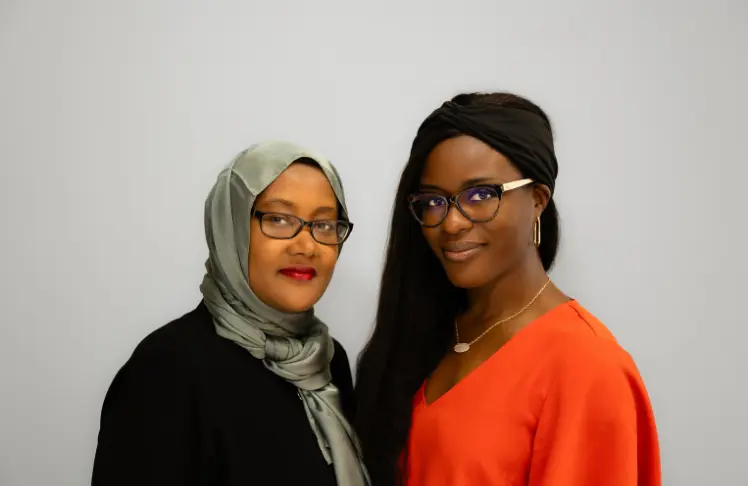
By Faisa Farole, LM, CPM, MA-MCHS, Executive Director, Global Perinatal Services and Tofunmi Osundeko, DMD, White Center Smiles
This year as we approach Mother’s Day, let’s honor motherhood by advocating for the maternal health of the important women in our lives – especially those within Black, Brown and immigrant communities who experience the highest rates of pregnancy-related health issues – including miscarriage and maternal mortality.
The unfortunate reality is that Black women are 43% more likely than white women to have a miscarriage and three times more likely to die from pregnancy and childbirth-related causes.
As health care providers who’ve made it our life’s work serving women within these high-risk communities, we’ve had an unfortunate front row seat to this tragic injustice – and it is past time that as a community we address the need for accessible culturally sensitive care including the important though often-overlooked connection between oral and overall health.
Pregnant people with untreated oral health problems may be at increased risk for preterm labor, low birth-weight babies, preeclampsia (a potentially dangerous pregnancy complication characterized from high blood pressure) among other adverse health outcomes – including tooth infections requiring the added expense of visits to urgent care or emergency dental clinics.
With regard to preeclampsia, studies have shown a greater risk among Black and Indigenous women compared to other women.
Poor maternal oral health is also a risk for babies after they are born. Children of mothers with poor oral health are more than three times as likely to have cavities as a child.
As with most inequities, there are many reasons for these disproportionate perinatal statistics including education, geographic, economic and cultural factors – all of which can impact access to medical and dental services.
From primary care physicians to midwives and doulas to dentists, patients who have shared values and establish cultural connections with their providers are more accepting of treatment and make better healthcare choices. But a serious lack of provider diversity and culturally sensitive care within communities of color and other historically underrepresented groups continues to contribute to the disproportionate incidence of women’s health issues.
For dental care in Black communities alone, to bring the number of dentists into parity with their share of the U.S. population it will require nearly 20,000 additional Black dentists. And as we all know, you can’t prevent health issues if you don’t have access to care.
Compounding matters is that more than 60% of pregnant Black women rely on Medicaid, yet only 28% of Washington state dentists accept Medicaid, due to low reimbursement rates and other factors, making these health issues even more prevalent in our area. Fortunately, one bright spot is DentistLink.org (1-844-888-5465). This no-cost referral service connects people to care whether they have insurance, including Apple Health (Medicaid), or not. DentistLink helps people find dental care near them and provides resources to other services—like interpretation and transportation—to support their good oral health. DentistLink is fully funded by Delta Dental of Washington’s Arcora Foundation and the Washington State Health Care Authority. After pregnancy, the system of care to support children’s oral health continues. Access to Baby and Child Dentistry (ABCD)—another Arcora program—connects Apple Health (Medicaid) insured children from birth up to age six [and children with special health care needs through age 12] with specially trained dentists in their communities for culturally affirming care.
This is a great service and a model which needs to be adopted immediately as a standard of care for all health facilities – medical centers, emergency rooms, community health clinics, Planned Parenthood offices – by including dentist referrals in new mom welcome packets alongside other vital service referrals such as pap smears, vaccinations, post-partum visits and baby wellness exams.
While there is no one solution for addressing equity and outcomes in perinatal care, for the sake of a mother’s personal health and their baby’s dental health now – and as they grow – the inclusion of dentist referrals in information packets for new moms is a no brainer.
So, as we honor mothers this month in addition to the exchange of cards and flowers, please join us in being a voice for improving maternal health for those who need it most.

